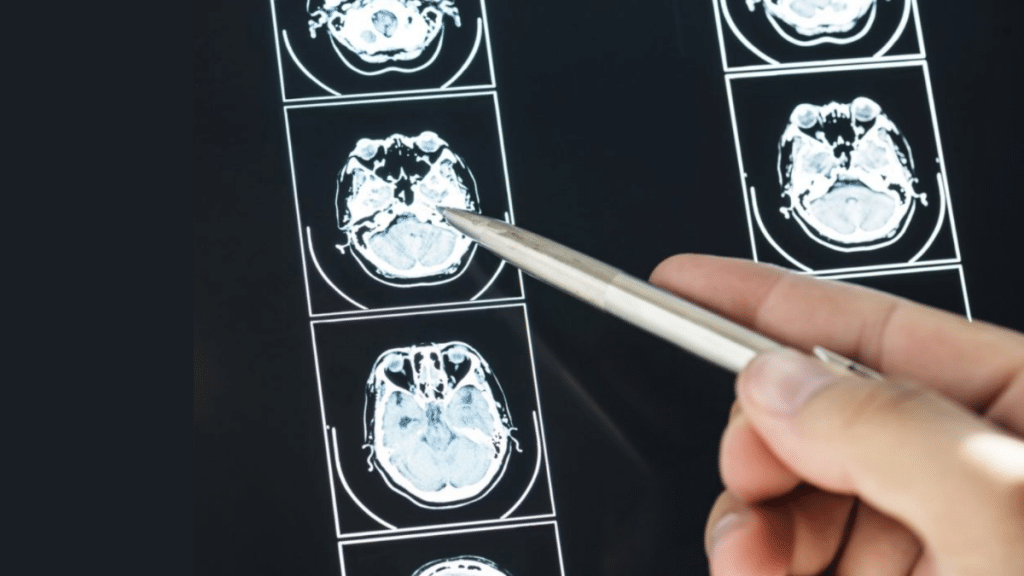Each year, millions of people around the world experience brain injuries. According to the Centers for Disease Control and Prevention (CDC), in the US alone, there are over 69,000 deaths related to TBI, and millions more live with disabilities caused by brain injury.
These injuries can profoundly impact a person’s life, affecting thinking, memory, movement, emotions, and even sensation. Understanding the different types of brain injuries—both those caused by a blow to the head (traumatic) and those caused by other factors (acquired)—is the first step to providing the best possible care and support.
Traumatic Brain Injury (TBI)
A traumatic brain injury (TBI) occurs when a sudden blow or jolt to the head disrupts the brain’s normal function. This can happen from a bump on the head, a fall, or a more serious impact. The force can cause the brain to bounce around inside the skull, damaging brain tissue and disrupting chemical processes.
Common Causes of TBI
TBIs can happen in a variety of situations. Some common causes include:
- Falls: This is a leading cause of TBI, especially in older adults and young children
- Accidents: Car accidents, motorcycle crashes, and bicycle accidents are all potential causes of TBI
- Assaults: Violence can lead to a TBI with varying degrees of severity
- Sports injuries: Athletes in contact sports like football, hockey, and boxing are at higher risk for TBI
Types of TBI
There are several types of TBI, ranging from mild to severe. Here’s a brief overview of some common types:
- Concussion: This is the most common type of TBI, often caused by a mild bump or blow to the head. Symptoms may be temporary and resolve on their own
- Contusion: A contusion is a bruise on the brain caused by a blow that damages blood vessels and brain tissue
- Hematoma: This is a collection of blood outside a blood vessel in the brain, which can put pressure on brain tissue
- Skull fracture: A fracture is a break in the skull bone. While not all skull fractures cause brain damage, they can increase the risk of TBI
- Diffuse Axonal Injury (DAI): This type of TBI damages the long fibers connecting different brain parts. DAI can be challenging to diagnose and may cause widespread problems with thinking and function.
Symptoms of TBI
The symptoms of TBI can vary depending on the severity of the injury. Some common symptoms include:
- Headaches
- Dizziness
- Confusion
- Difficulty thinking or concentrating
- Memory problems
- Loss of consciousness (brief or prolonged)
Note: These are just some of the most common symptoms. If you experience any of these symptoms after a head injury, it’s essential to seek medical attention right away.
Acquired Brain Injury (ABI)
An acquired brain injury (ABI) is damage to the brain that occurs after birth. Unlike a TBI, it’s not caused by a blow to the head. ABIs can occur for a variety of reasons that disrupt the normal functioning of the brain.
Common Causes of ABI
Some common causes of ABI include:
- Stroke: A stroke happens when blood flow to part of the brain is interrupted. This can damage brain tissue and lead to ABI
- Brain tumor: A tumor is a mass of abnormal cells that can grow in the brain. Tumors can put pressure on brain tissue and disrupt its function
- Infection: Infections like meningitis and encephalitis can inflame the brain and cause damage
- Lack of oxygen (hypoxia): If the brain is deprived of oxygen for a short period, it can lead to cell death and ABI
- Exposure to toxins: Certain toxins, such as carbon monoxide, can poison brain cells and cause damage
Types of ABI
ABIs can be categorized based on the cause. For example, a stroke-related ABI would affect the areas of the brain impacted by the stroke. Another type is anoxic brain injury, caused by a lack of oxygen.
Symptoms of ABI
The symptoms of ABI can vary depending on the cause and the part of the brain affected. However, they may overlap with some symptoms of TBI, such as headaches, dizziness, and difficulty concentrating.
Importance of Early Diagnosis and Treatment
Whether you experience a bump on the head or suspect an ABI due to sudden symptoms, seeking medical attention promptly is crucial. Early diagnosis of a brain injury allows for proper evaluation and treatment, which can significantly improve the chances of recovery and minimize long-term complications.
Medical professionals can assess the type and severity of the injury and develop a personalized treatment plan to address your specific needs. Don’t hesitate to seek help; it’s the best step towards optimal healing after a brain injury.
